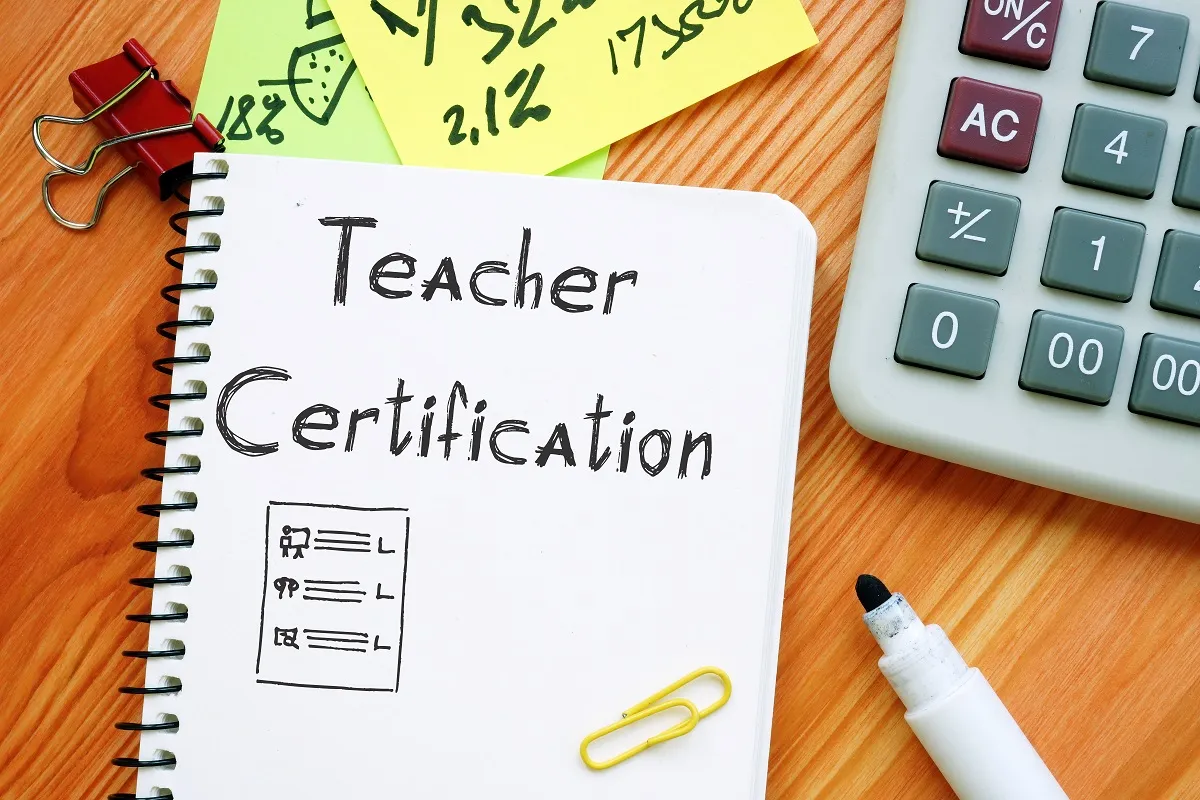Navigating the Teacher Shortage: In-Demand Certifications and Best Practices for Preparing to Get Certified
March-23-2023

As the teacher shortage continues to impact education systems across the country, the demand for qualified and certified educators is greater than ever. In this blog, we will delve into the most sought-after teaching certifications and provide practical tips to help you prepare for the certification process.
The Shortage of Teachers: A Growing Concern
The teacher shortage has been a pressing issue in recent years, with many districts struggling to fill vacant positions. This has led to larger class sizes, reduced support for students, and a negative impact on overall education quality. Factors contributing to the shortage include an aging workforce, low starting salaries, and high teacher attrition rates.
Teaching Certifications in High Demand
Several teaching certifications are particularly in demand due to the current teacher shortage. These include:
- Special Education: As the need for specialized instruction and support for students with disabilities increases, so does the demand for certified special education teachers.
- STEM (Science, Technology, Engineering, and Math): STEM subjects are vital for preparing students for the future, and educators with STEM certifications are in high demand to meet this need.
- English as a Second Language (ESL): As the number of non-native English speakers grows in our schools, the need for qualified ESL teachers is on the rise.
- Bilingual Education: Bilingual teachers are essential in today's diverse classrooms, and schools are actively seeking educators who can teach in multiple languages.
Best Practices for Preparing to Get Certified
- Research state requirements: Each state has its own certification requirements, so research your state's specific guidelines before beginning the process.
- Gain relevant experience: Gaining experience in the field can enhance your resume and help you stand out. Look for internships, volunteering opportunities, or part-time positions in the field you're interested in.
- Prepare for exams: Most certifications require passing one or more exams, so invest time in studying the necessary material, attending workshops, or joining study groups.
- Network with professionals: Networking with educators in your desired field can provide valuable insights and connections. Attend conferences, workshops, and local events to expand your professional circle.
- Stay informed: Keep up-to-date with industry news, trends, and changes in certification requirements to ensure you're well-prepared for the process.
- Take practice tests: Regularly taking practice tests will help you familiarize yourself with the exam format, identify your strengths and weaknesses, and track your progress. Here is some additional information on "Why Practice Tests Help You Pass Your Certification Exam". With the right tools and strategies in place, you'll be well-prepared to take on your certification exam and achieve your professional goals.
The Benefits of Practice Tests in Preparing for Certification Exams
As you prepare for teaching certification exams, incorporating practice tests into your study routine can provide numerous benefits. Here's how practice tests can help you on your journey to becoming a certified teacher:
1. Familiarize Yourself with the Exam Format
Practice tests allow you to become familiar with the exam format and question types, reducing anxiety and uncertainty on test day. By understanding the exam structure beforehand, you can better allocate your time and focus on the content rather than grappling with the format.
2. Assess Your Knowledge and Identify Weaknesses
Taking practice tests can help you gauge your current knowledge level and pinpoint areas that need improvement. By identifying your weaknesses, you can tailor your study plan to focus on the specific areas where you need the most work.
3. Enhance Time Management Skills
Certification exams often have strict time limits, which can be a challenge for many test-takers. Practice tests help you develop your time management skills by giving you the opportunity to simulate the exam conditions, allowing you to gauge your pacing and ensure that you can complete the test within the allotted time.
4. Improve Retention and Understanding
Research shows that taking practice tests can improve retention and understanding of material by promoting active engagement with the content. This "testing effect" allows you to reinforce the information you've learned, making it more likely that you'll recall it on exam day.
5. Boost Confidence
Finally, practice tests can help build your confidence by giving you a sense of accomplishment as you see your scores improve over time. This increased confidence can lead to a more positive mindset, which may contribute to better performance on the actual certification exam.
Incorporating practice tests into your certification exam preparation is a crucial step to ensure you're well-prepared and confident when taking the test. By familiarizing yourself with the exam format, assessing your knowledge, improving your time management skills, and enhancing your retention, you can maximize your chances of success and contribute to alleviating the teacher shortage by becoming a certified educator.
Get started today - Purchase your practice tests
By pursuing in-demand teaching certifications and preparing effectively, you can help alleviate the teacher shortage and embark on a rewarding career in education.Click Here for Teaching Certifications by State
Click Here for Teaching Certifications by Testing Agency
